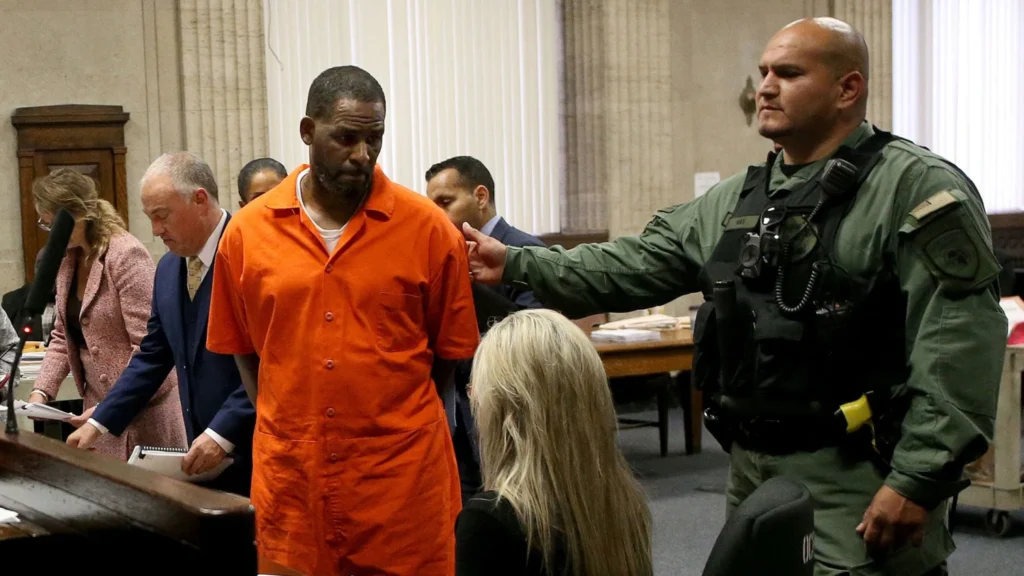In a startling development, convicted singer R. Kelly was rushed to Duke University Hospital on June 13 after collapsing in his cell at the Federal Correctional Institution in Butner, North Carolina. Kelly, now 58, is currently serving a 30-year sentence for racketeering, sex trafficking, and child pornography charges.
Emergency Transfer After Collapse
Kelly was reportedly placed in solitary confinement on June 10. During that time, prison officials allegedly provided him with a significantly higher dose of his prescribed anxiety and sleep medications, according to court filings submitted by his legal team. On June 13, Kelly began experiencing dizziness, vision issues—described as “seeing black spots”—and eventually lost consciousness. Fellow inmates alerted prison medical staff, who then called for an ambulance .
Hospital Findings and Concerns
At Duke University Hospital, doctors found that Kelly had overdosed on his medications and was also suffering from dangerous blood clots in both his lungs and legs—conditions that typically necessitate anticoagulant treatment and potentially surgery. Medical professionals reportedly recommended hospital observation and intervention lasting up to two weeks.
Despite these recommendations, Kelly’s legal team asserts that armed prison officers removed him from the hospital after two days and returned him to solitary confinement—allegedly in direct opposition to medical advice.
Accusations of Intentional Harm
Kelly’s lawyers, led by Beau Brindley, argue that the overdose was not accidental but deliberate. Kelly is also claiming he received warnings that he was in danger—being told to “avoid the mess hall” and fearing his food and water could be poisoned. The filing further alleges a conspiracy involving both prison staff and fellow inmates.
Central to the claim is a sworn statement from inmate Mikeal Glenn Stine, identified as a leader in the Aryan Brotherhood. Stine alleges that three prison officials approached him with a murder-for-hire proposition: kill Kelly in exchange for a reduced sentence or better prison placement. Although Stine says he chose not to follow through, he later informed authorities of the alleged plan.
Legal Battle and Home Confinement Request
On these grounds, Kelly’s attorneys have filed an emergency motion for his immediate transfer to home confinement, arguing his life is at serious risk. Brindley described the prison’s conduct as “deliberate indifference to human life” and petitioned a federal judge to authorize a temporary home furlough “before something irreversible occurs”.
Government Pushback and Upcoming Hearing
Federal prosecutors have strongly opposed this motion. They describe Kelly as an “unapologetic” serial offender who has never admitted wrongdoing. The prosecution dismissed the claims of wrongdoing at Butner as unfounded, maintaining that the courts lack the authority to grant such release while Kelly remains in custody.
A key hearing is scheduled for June 20, when a federal judge is expected to decide whether Kelly should be moved to home confinement or allowed to remain in prison. This report highlights serious allegations involving inmate safety, prison procedures, and legal questions. The June 20 hearing could set a crucial precedent for how such claims are handled within the federal prison system. Stay tuned for updates following the judge’s decision.

